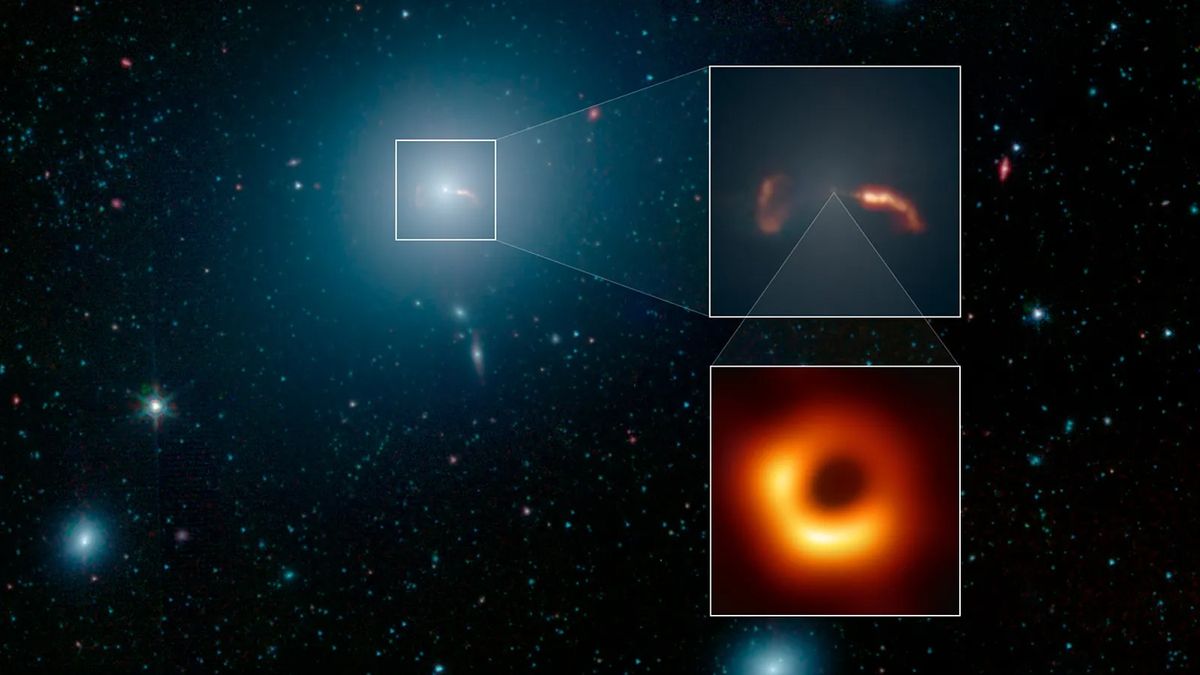Science
Related: About this forum1st black hole to be imaged is spewing 'lightsaber' energy jets larger than the Milky Way, and scientists think they kno
By Harry Baker published 1 day ago
Researchers may have finally figured out how fast-spinning black holes lose energy in the form of enormous energy jets after taking a closer look at the supermassive black hole M87*.

A wide-field image of the Messier 87 galaxy with a zoomed in picture of energy jets shooting out of the galaxy (top box) and the Event Horizon Telescope's first ever image of the M87* supermassive black hole (bottom box). (Image credit: NASA/JPL-Caltech/Event Horizon Telescope Collaboration)
The mystery of how black holes can lose energy to their surroundings has plagued scientists for nearly 50 years. But a group of researchers may have just found the answer to this cosmic puzzle lurking in the gigantic, lightsaber-like jets that shoot out from one of the most monstrous and well-studied black holes in the universe.
It's generally thought that nothing, not even light, can escape a black hole's intense gravitational pull — but this is not entirely true. Since the late 1970s, scientists have theorized that, as a black hole spins at extremely fast speeds, it could lose rotational energy in the form of enormous energy jets that shoot out perpendicularly to a black hole's event horizon, or the boundary beyond which nothing can escape the black hole’s pull. (Information may also escape from black holes via complex gravitational "twisting," but this is a completely different puzzle.)
However, despite detecting these energy jets multiple times and even photographing them, scientists have remained unsure exactly how energy is transferred between the spinning black holes and their supercharged outflows.
To solve this problem, researchers from Princeton University have turned their attention to M87* — a supermassive black hole with an equivalent mass of 6.5 billion suns at the heart of the massive Messier 87 galaxy, which is located 53 million light-years from Earth.
More:
https://www.livescience.com/space/black-holes/enormous-cosmic-lightsabers-from-gigantic-galaxy-could-help-solve-one-of-the-biggest-black-hole-mysteries
keithbvadu2
(40,915 posts)What happens to black holes when they die?
They evaporate?
https://tinyurl.com/24emvvxj
Easterncedar
(5,357 posts)I’m late catching up on my reading, but this one really grabs my little mind. Thanks Judi Lynn!!